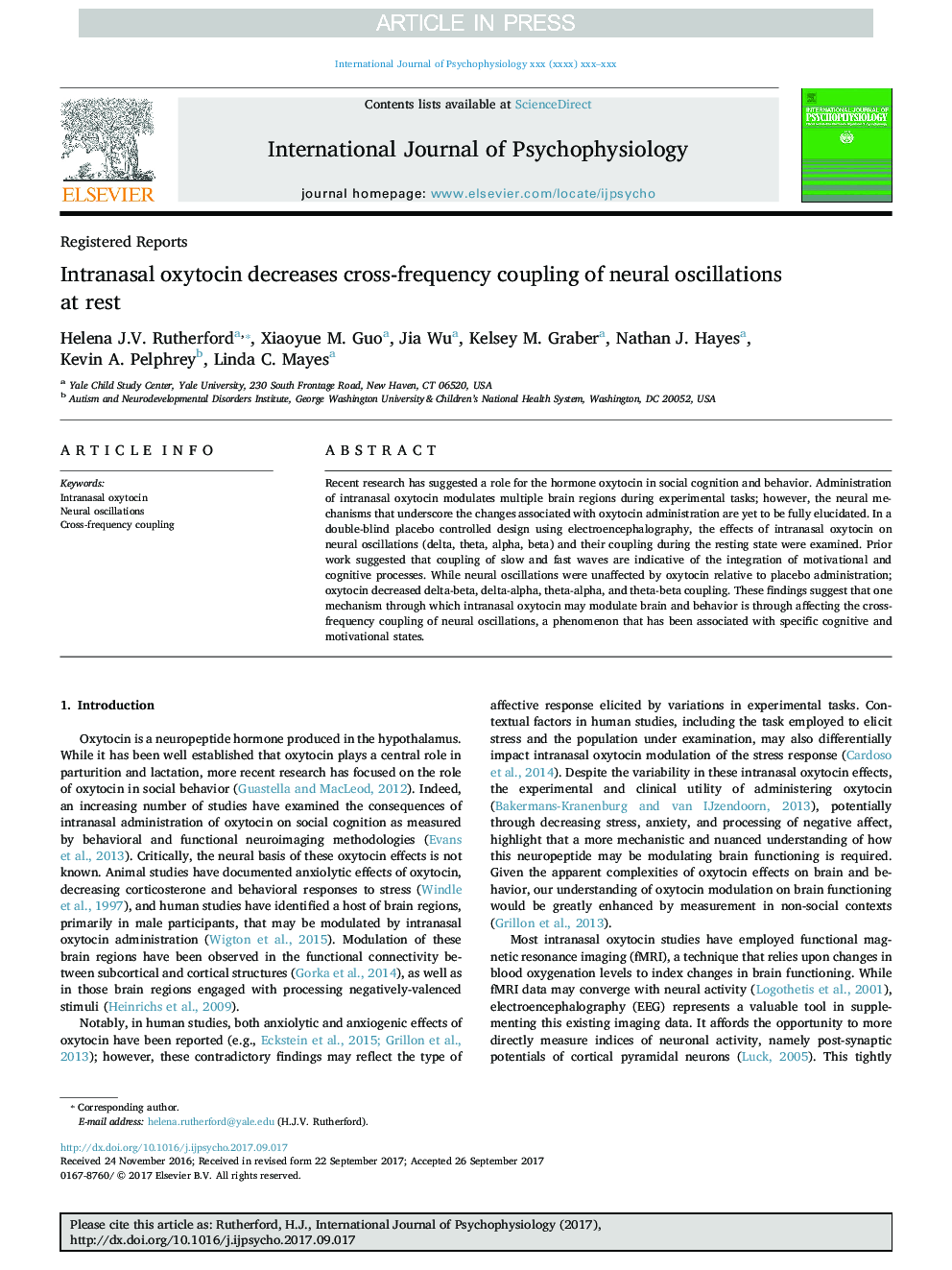| Article ID | Journal | Published Year | Pages | File Type |
|---|---|---|---|---|
| 7294940 | International Journal of Psychophysiology | 2018 | 9 Pages |
Abstract
Recent research has suggested a role for the hormone oxytocin in social cognition and behavior. Administration of intranasal oxytocin modulates multiple brain regions during experimental tasks; however, the neural mechanisms that underscore the changes associated with oxytocin administration are yet to be fully elucidated. In a double-blind placebo controlled design using electroencephalography, the effects of intranasal oxytocin on neural oscillations (delta, theta, alpha, beta) and their coupling during the resting state were examined. Prior work suggested that coupling of slow and fast waves are indicative of the integration of motivational and cognitive processes. While neural oscillations were unaffected by oxytocin relative to placebo administration; oxytocin decreased delta-beta, delta-alpha, theta-alpha, and theta-beta coupling. These findings suggest that one mechanism through which intranasal oxytocin may modulate brain and behavior is through affecting the cross-frequency coupling of neural oscillations, a phenomenon that has been associated with specific cognitive and motivational states.
Related Topics
Life Sciences
Neuroscience
Behavioral Neuroscience
Authors
Helena J.V. Rutherford, Xiaoyue M. Guo, Jia Wu, Kelsey M. Graber, Nathan J. Hayes, Kevin A. Pelphrey, Linda C. Mayes,
